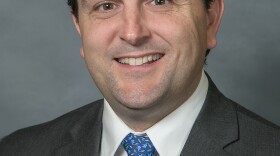Editor's note: This story has been updated with the most recent action from the state Legislature.
Lawmakers in the state Senate have passed a bill that would turn over five of the state's struggling elementary schools to charter school organizations.
The bill goes back to the House for an up-or-down vote.
The bill seeks to replicate a model known as an Achievement School District, where independent organizations take over some low-performing schools and manage them as if they were charters. The model was the focus of strong community resistance and had a minimal impact on student performance in Nashville and Memphis schools, according to Vanderbilt University research.
"These are the most chronically low-performing schools in the state of North Carolina," Sen. Chad Barefoot (R-Franklin) said. "What we're trying to do is provide a way to go in with a new management structure and turn those schools around."
Senate Democrats had concerns the model does not have a clear history of success in other states.
"Our state is totally different than other states," Barefoot responded. "Not every state is organized like we are."
Barefoot said the bill also provides more opportunities for local input than other states' models did.
Under the measure, elementary schools with school performance scores in the lowest 5 percent would be automatically eligible for takeover -- as long as they have not met or exceeded growth in the last three years, and as long as they haven't adopted a school turnaround model in the prior year. Local school boards could also ask for schools in the lowest 10 percent to be considered for takeover.
A committee appointed by the lieutenant governor would select a superintendent to run the charter district. The superintendent would recommend schools for conversion into the district, and the State Board of Education would have the final say on which schools are selected.
Sen. Angela Bryant (D-Nash) had concerns that schools could be taken over against their wishes.
"Particularly from a position of race and low wealth," Bryant said, "the element of coercion is so pernicious and harmful at multiple levels, there is no way you can have success from that level of force by government."
Barefoot said the performance grades show local school leadership has failed and that the schools need to be held accountable.
"That's what the fear is," he said, "that the light is going to be shined on schools that have been chronically performing, and it's time to do something about it."
Once the schools are in the charter district, the superintendent and the State Board of Education would select an operator for each school. The operator could be an organization with a record of improving low-performing schools in North Carolina or other states, or an organization with successful schools in North Carolina and a plan to improve the low-performing schools. The bill does not exclude for-profit companies or organizations.
"I really have issues with private entities coming in here and experimenting with kids, and us paying state dollars to those entities," Sen. Gladys Robinson (D-Guilford) said.









